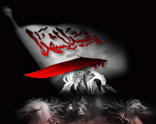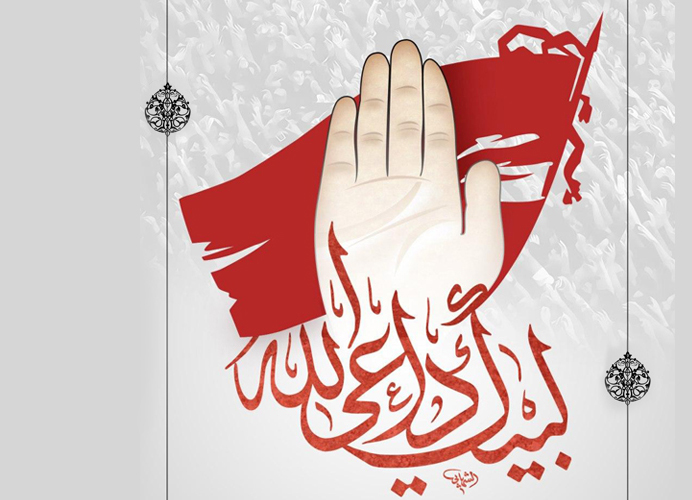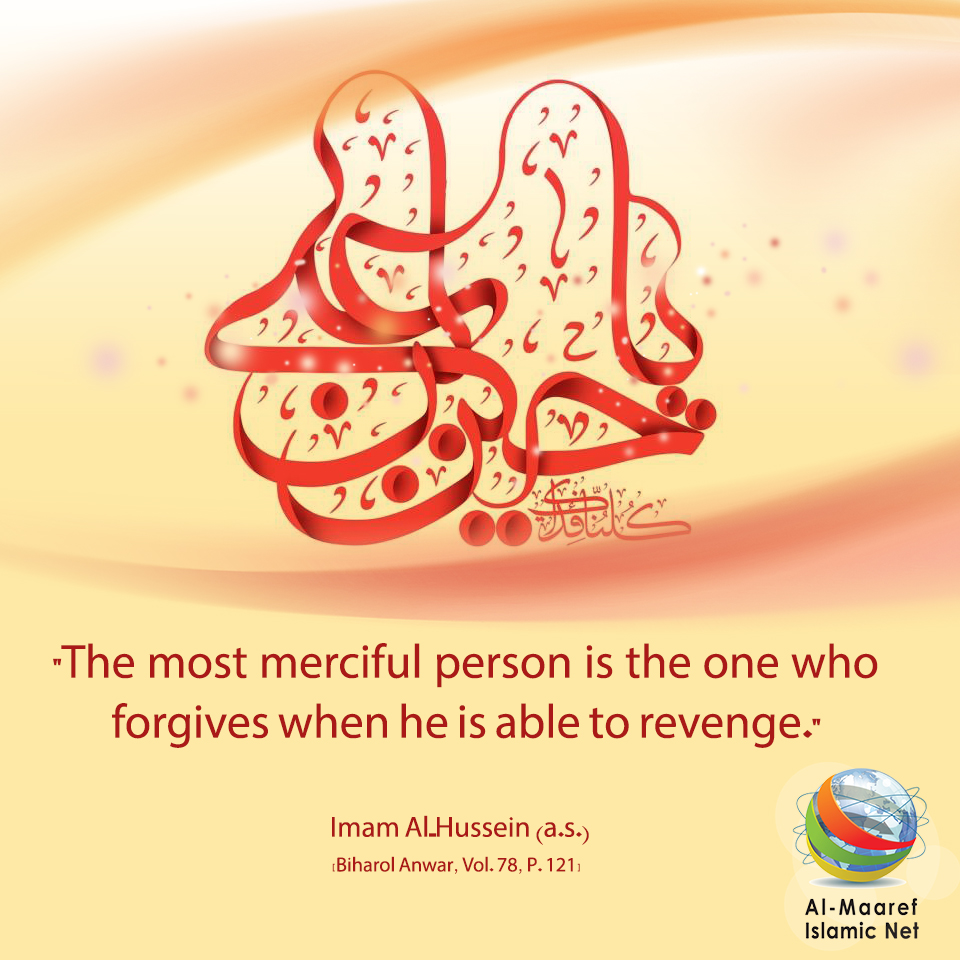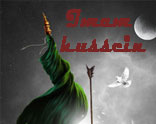Soil which is in the vicinity of the grave of Imam Husain (a.s.) is sacred. Allah has bestowed it with beneficence, unsurpassed in compassion to any other material. Allah has ordained it to be a cure for every illness, and source of Barakat and Divine mercy.
It is the most sacred of all things that can be used for prostration during the worship of Allah. Because of the utmost respect and faith that Shias have in the Turbah of Karbala, it has been used by us in different ways to overcome numerous problems.
Disrespect is shown by throwing it, stepping upon it or making it Najis, etc. If one drops a rosary (tasbhi) or Mohr of Turbah accidentally in the toilet, one is obliged to pick it up at once and purify it. It is Harām to use this toilet till the Turbah is removed. If removing it is not feasible the toilet must be sealed to prevent its use in future.
Merits of Turbah of Imam Husain (a.s.)
We have many traditions emphasising the greatness and beneficence of the soil of Karbala. We shall narrate two incidents with regard to the beneficial effects of Turbah and two anecdotes of the consequences of showing disrespect to it.
The respected scholar Shaykh Mufīd’s teacher, Shaykh Ibn Qulaway records in his book Kamiluz Ziyarāt a narration from Muhammad Ibn Muslim. He says: I went to Madinah and fell seriously ill. Imam Muhammad Baqir (a.s.) sent his slave with a vessel containing a drink covered with a handkerchief for me. The slave told me to drink it immediately because Imam (a.s.) had commanded him not to return till I have had it. The sherbet was cool and had the fragrance of musk. The servant told me: ‘It is the Master’s command that after taking the medicine you present yourself to him?’ I was astonished that I was hardly able to get up, neither could I stand on my feet, how could I go to Imam (a.s.)? But as soon as I took the drink I felt as if I was released from tethering chains. I walked on my own to the residence of Imam (a.s.) and sought permission to enter. Imam (a.s.) said, ‘You have regained health, so enter!’
I entered weeping and saluted Imam (a.s.) and kissed his hands. ‘Why are you weeping, Muhammad?’ asked Imam (a.s.) I said, ‘May I be sacrificed for you, I am weeping upon my lack of strength, separation from hometown, distance from my destination, separation from your respected self and the deprivation of your company.
Imam (a.s.) said,
‘Due to lack of strength our Shias remain in difficulties and problems like you. But as far as your being at a distance from your hometown is concerned, the fact is that a believer is like an alien amidst the corrupt people of this world, till the time he meets his death. But as for your saying that your house is very far from Madinah you must follow Abu Abdillah Imam Husain (a.s.). How he left Madinah and made the bank of Euphrates, his abode. As for your love and the desire of seeing us, Allah is aware of your feelings and He would surely reward you for your good intentions.’
After this Imam (a.s.) asked,
‘Do you go for the Ziarat of Imam Husain (a.s.)?’
‘Yes,’ I replied, ‘But in great fear.’
He said,
‘The more fear and hardships are there, the more rewarding it shall be.’
One who is fearful of undertaking this journey shall be safe from the hazards on the day of Qiyāma. He shall return, purified of sins.
Then Imam (a.s.) asked how I had found the drink? I said, ‘I testify that you Ahl ul-Bayt (a.s.) are Mercy and inheritors of Prophets (a.s.). When the servant brought the sherbet I didn’t have the strength to stand. I had lost all hopes of remaining alive. When I drank the sherbet I felt that I had never drunk anything more tasty, fragrant and cool.
The servant told me that my master had summoned me, so I decided I will try to reach him even if I died in the endeavour. When I set out, I felt that my malady had disappeared and I thanked Allah for making your respected self a channel of mercy for the Shias.
Imam (a.s.) said, ‘The Sherbet you drank, was made from the soil of the grave of Imam Husain (a.s.). It is that beneficial thing which I use as medicine. Beware! Do not consider anything its equal. We give it to our children and women and perceive its unlimited benefits.’ I said, May I be sacrificed on you, we shall also pick it up and seek cure from it.’
Imam (a.s.) said, ‘When people pick it up from the vicinity of Imam Husain’s tomb and take it outside they do not accord the respect due to it and do not keep it packed in a secure way. So every Jinn, animals and all those creatures who are in need smell from it and thus others derive benefit from it. However, a soil that contains such a cure must not be stored like this, lest it loses its effect. If one can ensure its protection then one should touch it to ones body or consume it, one shall be cured at once. Turbah is just like Hajar al-Aswad (the black stone) that used to glow like a white ruby and any diseased person who touched it used to be cured. Due to the infidels and the people of Jahiliyya touching it often, it became black and its effect lessened.
I asked, ‘How should we pick up the respected turbah? And how should we store it?’ Imam (a.s.) said,
‘You also pick up the turbah like other people and without wrapping it up in anything you keep it in your dirty bag. In this way it loses its barakat’.
‘You are right, Master,’ I said. Then he said, ‘How would you take it if I were to give you a little bit of Turbah?’ I said that I shall keep it between the layers of my clothes and carry it away.’ Imam (a.s.) said,
‘When you return you may drink as much Sherbet as you like but do not take any Turbah with you because you will not be able to take care of it’
Before I left, Imam (a.s.) gave me the same sherbet twice. After that I never suffered from the disease again. (Mustanadush Shia / Layalial Akhbar)
Keeping Turbah with the corpse
There was an adulteress who used to destroy her illegitimate issues by putting them in the oven for fear of her family members. Except for her mother no one knew of her misdeeds. When she died and people tried to bury her, the earth did not accept her and threw her out. When they tried to bury her at another place the same thing happened. The problem was presented to Imam Ja’far as-Sadiq (a.s.) and he asked her mother which sin she had committed. When the mother confessed, Imam (a.s.) said that earth would never accept her because she used to punish Allah’s creatures with the punishment that only Allah has the right to punish (That is, burning alive). Then Imam (a.s.) told them to place a little turbah in her grave. This was done and then the earth did not convulse when she was buried in it. (Mustanadush Shia)
Anointing the Corpse with Turbah
A little bit of Turbah should be placed on the face of the corpse when it is buried, it is Mustahab. It is also Mustahab to mix a little Turbah in the camphor which is applied to the corpse. However, it should only be used for anointing the forehead and palms. The knees and toes must be anointed only with camphor. Because applying Turbah to the knees and toes would be an act of disrespect to it.
Turbah has the cure for every disease
Shaykh Tusi writes in his Amali quoting his teachers that Muhammad Azdi said that: I was praying in the Jama Masjid of Madinah and sitting next to me were two men, one of whom was dressed like a traveller. He was saying: the turbah of Imam Husain (a.s.) has cure for all diseases. I was sick for a long time and no cure was effective. I was losing all hopes of recovering. Death was staring me in the face. An old lady of Kufa came to me when I was in extreme pain. She told me that day by day my condition was worsening. ‘Yes’, I said, ‘this is true’. She said if I permitted she can provide a cure for me. I agreed to it. She put some water in a vessel and told me to drink it. I drank it and was instantly cured, as if I had never been ill.
After a few months the lady visited me again. Her name was Salma. I put her under oath to tell me how she had cured me? She said that she had cured me with a bead of the tasbih she was holding in her hand at that time. I asked what was the speciality of that tasbih. She said it was made from the soil of the grave of Imam Husain (a.s.).
I said: O Rafidiyya!1 Did you cure me with the soil of the grave of Husain? The lady arose in anger and went away. My illness returned, and my condition was so serious that I was convinced of an early death.
The man’s faith should have been enhanced by this edifying incident. Instead he insulted it and lost the benefits he had gained from it. He suffered the disease again, becoming an example of the ayat,
“And We reveal of the Qur’an that which is a healing and a mercy to the believers, and it adds only to the perdition of the unjust.” (Surah al-‘Isrā’, 17: 82)
How true are the couplets of Sadi, which say: Rain water is Allah (S.W.T.)’s Mercy. There is no doubt in its benefits and purity. But a drop that falls into the mouth of an oyster becomes a precious pearl, and a drop that falls in the mouth of the snake becomes fatal poison.
Disrespect of Turbah Invites Destruction
Shaykh Tusi mentions in the Amali quoting from Mūsa Ibn Abdul Aziz that he said: One Christian Physician by the name of Yohanna came to me and said, ‘I put you under the oath of your religion and your Prophet, you tell me whether the man buried in Karbala, for whose Ziarat people come in hordes, was a companion of the Prophet?’ I said, ‘No! He was the grandson of our Prophet (S), Hazrat Husain (a.s.). Now! I put you under oath to tell why you had posed such a question to me?’ He said: I have heard a very strange tale about him. One night, Shapūr the servant of the accursed Caliph Harūn came to me and took me to Mūsa Ibn Isa a close relative of the Caliph.
I found him unconscious on his bed. His internal organs were lying in a pail before him. Those days Harūn had summoned him from Kufa. Shapūr asked the special servant of Mūsa what was the matter with his master. He said that he was all right a few hours ago and chatting with his colleagues. One of them was Hashemite. He was saying: I was seriously ill and all the doctors had failed to cure my sickness. My scribe suggested that I seek the cure from the Turbah of Hazrat Husain (a.s.). I followed this advice and was cured.
Mūsa asked him if he had a piece of that turbah remaining with him? ‘Yes’, he said, and sent someone to get it for Mūsa at once. In order to defile it Mūsa threw it in the drain pipe of his bathroom. Suddenly Mūsa screamed ‘Fire! Fire!’ as if he was burning in fire. He asked for a pail and what you see in it are the pieces of his internal organs. Seeing that, all his friends left his house and a state of mourning descended on his family.
Shapūr told me to remain there for the night and observe his condition and draw some conclusion. He stayed for the night and Mūsa expired at dawn.
The narrator says that Yohanna the Christian visited the tomb of Imam Husain (a.s.) many times and ultimately he accepted Islam and remained a Muslim all his life. This report is also mentioned in the 10th volume of Bihār al-Anwār.
True Dreams
Mirza Husain Nūri (r.a.) writes in his book Darus Salām that one of his brother went to visit their mother. He was carrying the Turbah of Imam Husain (a.s.) in one of his lower pockets. When his mother came to know of this she reprimanded him that this was not the way to carry Turbah. There was a strong possibility that it gets crushed under the thigh while one sits, and would be an act of disrespect. The brother said that it was true and till then two mohrs had got crushed under his thighs. He told mother that he would never ever carry it in the lower pocket of the gown.
Now our father was unaware of this incident and one night he had a dream that Imam Husain (a.s.) had come to visit him in his study. He stood besides my father and spoke with kindness and generosity. Then he requested my father to summon his sons so that he may present them some gifts. My father had five sons. He called all of them and seated them in the opposite room. Some dresses were kept in front of Imam (a.s.). He summoned each son in turn and presented him a dress. When it was the turn of my brother who had carried the Turbah. Imam (a.s.) glared at him in anger. He (a.s.) told my father that ‘this son of yours has crushed my turbah under his thigh, two times so far.’ Imam (a.s.) did not present him with an expensive dress like the rest of the brothers. His dress was of inferior quality and Imam (a.s.) did not even hand it over to him. He kept it out of the room for him to pick it. When my father awoke he related the dream to our mother who told him about the previous incident. My father was astounded at the reality of his dream.
We beseech the Almighty by the holy name of the chief of the Martyrs (a.s.) that He give us the Tawfīq to seek forgiveness for the sins that we have committed in the past and to abstain from sins in future.
* By: Shaheed Ayatullah Abdul Husain Dastghaib Shirazi
1- A derogatory term for Shias used by their opponents



















